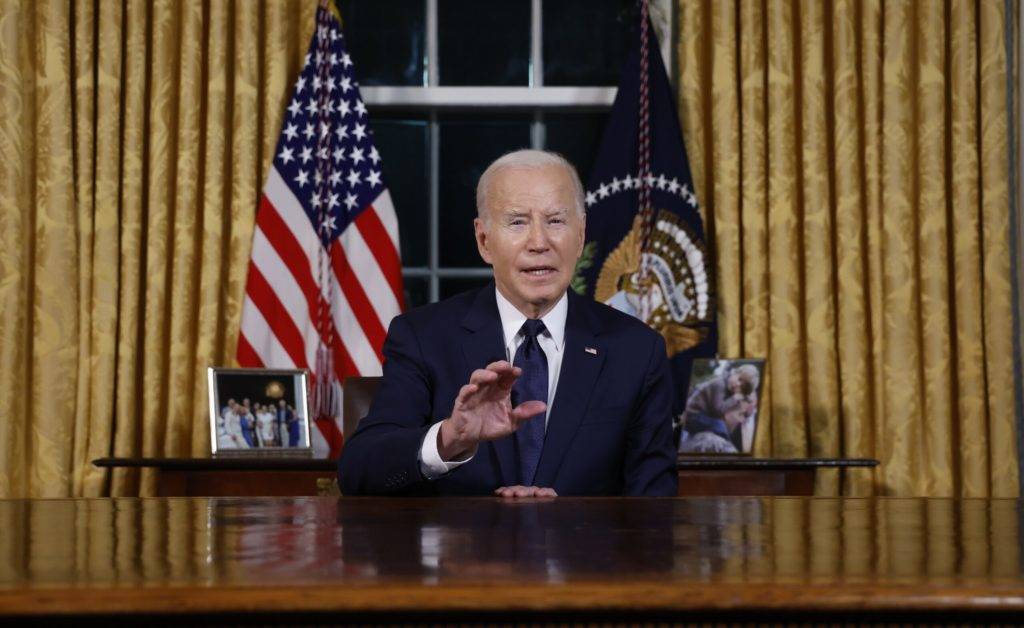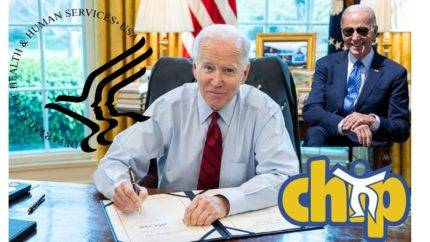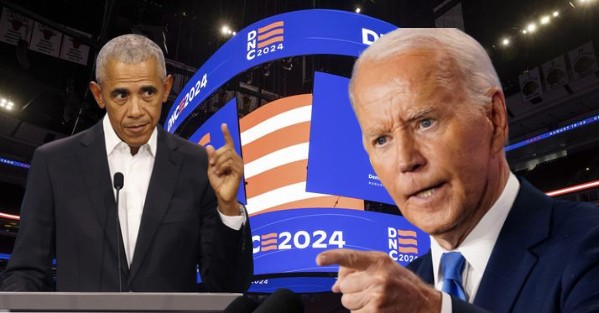President Joe Biden revealed that his administration has achieved a milestone with the first CHIPS preliminary agreement, valued at an impressive $35 million, in collaboration with BAE Systems. This strategic partnership is a testament to the significant investments made by the United States in chip manufacturing, signaling a pivotal moment in bolstering the nation’s technological capabilities.
The CHIPS agreement aims to address critical aspects of national security, with a focus on enhancing the production and supply chain of semiconductor chips. This move is not merely a financial investment but a strategic commitment to securing the country’s technological future. The President emphasized that this initial agreement is just the tip of the iceberg, as the administration plans to forge similar partnerships in the near future, ushering in a new era of innovation and resilience in the semiconductor industry.
Unveiling the Impact on National Security
The $35 million investment in the CHIPS agreement with BAE Systems is poised to play a pivotal role in fortifying the nation’s security infrastructure. Semiconductor chips are integral components in various defense technologies, from communication systems to advanced weaponry. By fostering collaborations with industry leaders like BAE Systems, the Biden administration aims to ensure a robust supply chain of these crucial components, reducing dependency on foreign sources and safeguarding national security interests.

Moreover, this initiative aligns with the broader strategy of technological sovereignty, allowing the U.S. to maintain control over key aspects of its defense capabilities. The President highlighted the significance of this investment in bolstering the nation’s resilience against emerging threats, emphasizing the importance of staying at the forefront of technological advancements for both military and civilian applications.
Driving Local Investments and Economic Growth with CHIPS agreement
Beyond its impact on national security, the CHIPS agreement holds the promise of stimulating local economies and fostering job growth. President Biden stressed that this investment is not only about securing the country’s technological future but also about creating opportunities for American workers and businesses. The $35 million award to BAE Systems is expected to catalyze local investments, supporting research and development initiatives and creating high-skilled jobs in the semiconductor sector.
This commitment to domestic manufacturing aligns with the administration’s broader economic agenda, emphasizing the importance of a resilient and self-sufficient supply chain. The President hinted at forthcoming collaborations with other industry leaders, suggesting that these partnerships will contribute not only to the advancement of technology but also to the prosperity of communities across the country.
Future Prospects and Expanding Partnerships
President Biden‘s announcement of the CHIPS agreement with BAE Systems serves as a prelude to a series of anticipated collaborations in the semiconductor industry. The administration envisions expanding partnerships with a diverse range of companies, fostering innovation and competition within the sector. This approach aligns with the broader goal of diversifying the semiconductor supply chain, reducing vulnerabilities, and ensuring a steady and secure stream of essential technologies.
As the United States positions itself as a global leader in semiconductor manufacturing, the President emphasized the need for continuous investment and collaboration. This forward-looking strategy is poised to reshape the landscape of the semiconductor industry, positioning the U.S. at the forefront of technological innovation and economic competitiveness.

Navigating Global Challenges and Ensuring Supply Chain Resilience
Against the backdrop of global challenges, including semiconductor shortages and geopolitical tensions, the CHIPS agreement with BAE Systems represents a strategic move to enhance supply chain resilience. President Biden underscored the importance of securing critical technologies domestically, reducing dependence on foreign sources, and mitigating risks associated with disruptions in the global supply chain.
This proactive approach aligns with the administration’s commitment to addressing vulnerabilities exposed by recent events. By fostering collaborations with industry leaders, the U.S. aims to build a robust and resilient semiconductor ecosystem that can withstand external pressures, ensuring the continuous availability of essential technologies for both national security and economic prosperity.
Public Response and Industry Reaction
The announcement of the CHIPS agreement has garnered widespread attention, drawing praise from both industry experts and the public. Stakeholders in the semiconductor sector have welcomed the administration’s commitment to fostering innovation and strengthening the domestic supply chain. Analysts predict that this strategic investment will have far-reaching implications, not only in terms of technological advancements but also in shaping the economic landscape.
As the news resonates across various sectors, it is evident that the Biden administration’s proactive stance on semiconductor manufacturing has struck a chord with those concerned about the nation’s technological future. The public eagerly awaits further developments, anticipating the positive ripple effects of these strategic partnerships on job creation, economic growth, and the overall resilience of the United States in an increasingly competitive global landscape.
Table of Contents
Discover more from OGM News NG
Subscribe to get the latest posts sent to your email.














